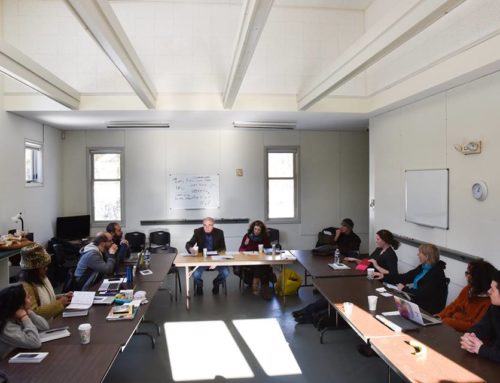So you’re finally plunging into your first draft and all is going nicely for several pages when all of a sudden a little devil appears on your shoulder and whispers in your ear “this is stalling out…the characters aren’t coming to life…who do you think you’re kidding?…this is a disaster…” and suddenly you’re frozen and everything grinds to a halt.
When this happens (and more than likely at some point it will) take comfort in the fact that all writers have to fight the negative voice that inevitably tries to derail their forward progress. Here is what some of our most successful writers have told me:
–Two-thirds of the way through writing her Pulitzer Prize-winning play ‘night, Mother, Marsha Norman heard an inner voice saying: “I don’t know what this is. I’m in real trouble here. I mean, nobody’s going to want to do this, right? It’s going to be real embarrassing.”
–While working on a first draft of a new play Terrence McNally said “I wanted to kill myself, burn the play, quit the Dramatists Guild, resign from being their vice president, quit teaching at Juillard. How can I teach playwriting? I don’t know what I’m doing.”
–Emily Mann captured it nicely when she simply said: “There are crazy days when you lose all belief.”
The point is, obviously, that you have to ignore this voice, turn it off, and keep pushing through. First drafts are treks through the wilderness, blazing the initial path. There’s no other way. And in most cases, it’s in cranking out the second, third, or fourth draft that a script begins to lift off and that nasty little voice fades out and is gone.
I’m the Program Director of the low-residency MFA in Writing for Stage and Screen being offered by the New Hampshire Institute of Art. Our next residency runs January 3-11, 2016 and we are now considering applications for starting the program in January. I’m also a playwright and screenwriter, producing partner in my production company Either/Or Films (The Sensation of Sight and Only Daughter), and a professional script consultant.






Leave A Comment